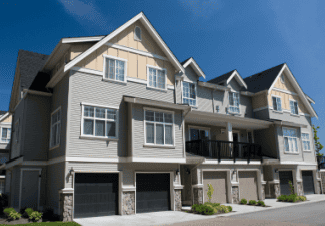How To Wholesale Real Estate: A Step-by-Step Guide for Beginners

When someone wholesales real estate, they act as an intermediary between property sellers and buyers. The wholesaler agrees to sell a property on the owner’s behalf for an agreed-upon price without acting as their real estate agent or purchasing the property themselves. If the home sells for more than the agreed-upon price, the wholesaler keeps the difference as profit.
Real estate wholesaling is one way for investors to get into the real estate business without significant up-front capital or properties of their own. Keep reading to learn what wholesale real estate is and how you can partake in this business venture.
What Is Real Estate Wholesaling?
Wholesaling real estate is a business strategy wherein investors enter into a temporary home contract with a property owner, only to sell or reassign the contract to another buyer later on. Real estate wholesalers make money by finding a buyer willing to pay more than the agreed-upon price in the initial contract with the seller.1
“Wholesalers and property owners sign a contract in which the wholesaler agrees to sell the property on behalf of the owner within a specified timeframe and for a minimum specified price,” David Aylor, an attorney and owner of David Aylor Law Offices, said in an email to The Balance. “It’s often done when property owners feel their property is a tough sell or simply don’t want to bother trying to sell it themselves.”
Note
Unlike other forms of real estate investing, wholesalers never take ownership of the property in question and don’t have to purchase it up front. In fact, there’s no up-front capital required to start wholesaling real estate; the biggest investment is time.
How To Wholesale Real Estate
Step 1: Find Properties To Sell
To wholesale real estate, you first have to find properties to buy and sell. Sellers who enter into wholesale real estate contracts may have distressed situations—either the property is in poor condition or the seller is in financial distress and eager to sell. For example, a seller could be someone who has inherited a distressed property and doesn’t want to fix it up and sell it themselves.
According to Jeff Shipwash, a real estate investor and owner of Shipwash Properties LLC, a good marketing strategy may help you find those properties.
“To wholesale real estate successfully, first you need to develop an excellent marketing strategy in order to locate off-market properties,” Shipwash said in an email to The Balance. “Common marketing strategies include direct mail, driving for dollars, Google Ads, SEO, and cold calling.”
Step 2: Enter Into a Contract
Once you find a property to wholesale, you’ll enter into a contract with the seller. The contract stipulates a period of time in which you must sell it and a minimum price you must sell it for. For example, you may agree to sell the property for $200,000 in 90 days. The minimum sale price is $200,000—the amount the seller will get from the sale. Anything in excess of that minimum price is profit for you as the wholesaler. So if you were to sell the home for $225,000 in that 90-day period, you would pocket $25,000, while the seller would get the agreed-upon $200,000.
Step 3: Find a Buyer
After entering into the contract with the property seller, it’s time to find a buyer. In most cases, the buyers of wholesale properties are real estate investors willing to pay cash, according to Shipwash.
Note
As a real estate wholesaler, it’s helpful to have a network of investors you can turn to when you have a property available. You may be able to utilize social media sites like Facebook and LinkedIn to connect with others or local real estate investment groups in your area.
Step 4: Reassign or Sell the Contract for a Profit
Once you’ve found a buyer and agree on a sale price, you’ll sell the home contract to the buyer, ideally for a higher price than you’ve agreed to with the seller. The buyer takes ownership of the home, just as they would with any other real estate purchase. The seller gets the amount they agreed to and you get to keep the difference as profit.
Real Estate Wholesaling vs. Flipping Homes
Real Estate Wholesaling |
Flipping Homes |
| Requires little up-front capital | Requires significant up-front capital |
| Wholesaler doesn’t actually purchase the home | Investor purchases the home |
| Wholesaler sells the home as-is | Investor renovates the home before selling |
| Lower profit margin | Higher profit margin |
Wholesaling real estate and flipping homes are both forms of real estate investing wherein you make a profit by acting as an intermediary between a buyer and a seller. But other than that factor, the processes are entirely different.
First, a real estate investor who is wholesaling real estate never actually takes ownership of the property. They simply enter into a contract until they can find a legitimate buyer.
Someone who is flipping houses, on the other hand, actually purchases the home. Before reselling it, a flipper often renovates it. Between purchasing and renovating, flipping homes may require a significant investment of money and time.
“Wholesaling doesn’t usually involve any renovations, while house-flipping centers around the idea of finding a house that you can quickly renovate to build its value,” Aylor said. “Often, wholesaling is done with properties ‘as is,’ and they’re usually sold to a buyer willing to put in the work to improve them.”
That being said, flippers generally enjoy a much larger profit margin than someone wholesaling real estate. After all, the flipper has increased the home’s value through renovations and improvements, while the wholesale property is sold as-is. The lower profit margins for real estate wholesalers account for the fact that these investors take on significantly less risk than flippers.
Should You Wholesale Real Estate?
Wholesaling real estate can be a good strategy for those who want to get into the real estate business but don’t have the capital to do so. Because there’s no up-front investment, wholesaling may be more accessible than other forms of real estate investing.
Keep in mind that while it doesn’t require a financial investment, wholesaling real estate isn’t right for everyone. Wholesaling requires a marketing strategy to find properties as well as a large network of real estate investors willing to purchase the properties you’re wholesaling. Therefore, this type of investment may not be ideal for those who aren’t adept at sales or who prefer a more passive, hands-off investment.
Frequently Asked Questions (FAQs)
How old do you have to be to wholesale real estate?
To wholesale real estate, you usually must be at least 18 years of age, the minimum legal age to enter into a real estate contract. The exceptions are in Alabama and Nebraska, where the age of majority is 19.
How do you find wholesale real estate deals?
To find properties to wholesale, you’ll have to employ a good marketing strategy that may include cold-calling, direct marketing, and social media optimization.
How do you start a wholesale real estate business?
To start a wholesale real estate business, you’ll need to employ marketing efforts to find off-market properties to sell as well as build your network of real estate investors to buy the properties.
In which states can you wholesale real estate without a license?
In most cases, no real estate license is required to wholesale real estate as long as your activities don’t cross the line into those of a real estate agent or broker. Some states may limit the number of transactions you can make without a license. Be sure to research the laws for your state before you start your wholesale real estate business.
Source: The Balance Money















 Accessibility
Accessibility